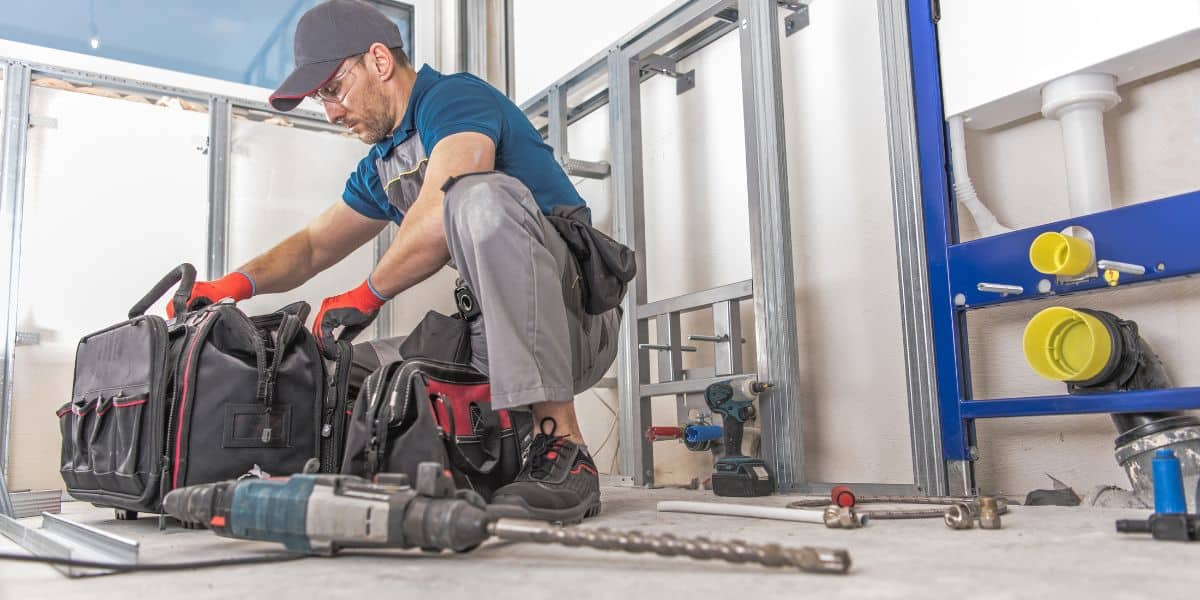Questions to ask your contractor before they start the job
So you’re ready to remodel your bathroom. It can be a very exciting process, especially if you have the right bathroom contractor. One of the biggest mistakes clients can make is to not ask enough questions or be involved in the process. The last thing that a bathroom contractor would want to deal with is an unhappy client.
We created a list of questions to ask your bathroom contractor before hiring them and starting the remodel. These questions will help clear up a few things and make sure you’re choosing wisely.
1. Do you have any examples of past bathroom renovation work?
Check out the reviews of your bathroom contractor. Check out their punctuality and communication skills. Also, look at the cleanliness of the work area, as well as work quality. If you find negative reviews, do not dismiss them immediately. If they have good communication and conflict resolution skills, you may be able to work with them.
Look at the portfolios of previous work, particularly if your project is a specialty. You can view photos of the work done by bathroom remodeling contractors before hiring them.
2. Do you handle bathroom remodeling projects that are similar to mine?
Contractors may specialize in a particular type of project. One contractor might specialize in bathroom additions while another may focus on small bathroom renovations. This question will save time and energy for everyone involved. Ask your contractor if he has any design experience if you require bathroom design. Consider hiring an architect or designer if you don’t have one.

3. How many projects are you running at once?
You need a company with a long-term relationship with its subcontractors and who has the time to spend with you. You and your contractor should have the same expectations regarding how often they’ll be on site once the project begins. The contractor should tell you how long each phase of the project is expected to take. They should also be able to explain what factors might cause this timeline to extend.
A great contractor goes above and beyond to ensure that a client’s question is answered. A contractor who communicates will not be afraid to take responsibility and will always keep the client informed about where the project is at.
4. Who will be working at my house?
Some general contractors are also the head of their business and employ foremen to manage projects. You should meet the project manager to ensure that it is someone you would want in your home everyday. Your contractor may bring in additional specialists depending on what is involved for your bathroom remodel.
In most cases, this is a positive thing. You want to hire a specialist in areas like drywalling, painting and tiling. If you want a vintage style bathroom, that may require someone with certain experience. Ask the subcontractor what exactly will be done and find out more about them.
5. Are you licensed, bonded and insured?
Contractors and subcontractors who work on your home should meet state and local requirements for licensing, insurance, and bonding. Insurance will protect you in the event that your house is damaged during construction, or if workers are injured on the job. A bonded contractor will protect you from the possibility of the contractor failing to pay his workers, not paying for permits or not finishing the work. Find out how to conduct your research.
6. What permits will my project require and will you obtain them?
It could be an indication that a contractor doesn’t have the proper license if they refuse to obtain permits. It may be necessary to get permits in order to ensure that the work meets code and your homeowners’ insurance will cover any damage. Ask if permits are needed and if so, request to see them before you start the project.
7. How do you work?
When does the day begin and end? Do the workers clean up everyday at the end? Will they remove debris and garbage?
Ask how the pros will protect your hardwood flooring from damage if they are working inside. This is best discussed in advance and documented. Don’t take their word, but read the reviews of other homeowners to get a better idea of their work style.

8. When do you expect payment?
A deposit of around 10 percent is normal, but anything higher could be a warning sign. You should never be asked to pay cash upfront. Get all the details in writing, including how much and when you are due to pay.
9. Do you itemize your bid?
You can ask about the cost ranges for specific parts of your project like electrical, plumbing and toilet installation. You can then decide whether the price you are being charged is reasonable. This allows you to adjust your budget as needed.
10. How did you resolve differences of opinion before?
Miscommunications are rarely the fault of only one party. So if your contractor responds to this question by blaming the client entirely, you probably won’t have a good experience. You may be on the right track if the contractor is willing to fix things with clients.
11. Is the contract comprehensive?
Make sure you read the contract and understand it. Ask the contractor for clarification if you do not understand. Be sure to include a written contract with a start and an end date. Renovations are always subject to change. By putting the entire plan in writing, everyone will know what is expected.
Ask the contractor about what is not included. It will help to avoid any conflicts. The discussion may have included bathroom accessories. Are they included in the price or extra? If they are included, what grade are they? Are they paint grade? If so, is the finish similar to what you would expect from furniture? Samples are always helpful.
12. How will we communicate?
Check that you can get in touch with the remodeling team throughout the timeline of the project. This way, if you have concerns, new bathroom remodeling ideas, or if an emergency pops up, you can talk to someone. The head of the team should also be able to get in touch with you at any time. Go over the best ways and times to reach each other, and ask how often you should expect updates or progress reports.

